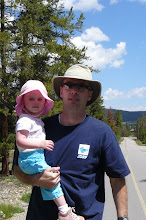whatcha gonna do?
Monday, June 27, 2005 by niebuhrian
Just so you know, Tod is a member of the congregation that has endured my preaching on various Sundays throughout the past two years. I often see him hanging out in the choir loft, peering around the lights that block the view of the pulpit. Tod has been a fairly constant source of challenge and encouragement as I have grown into my robe over these past few years; for that I am thankful. As to how I will use this quiz, here are some thoughts…
I value experience. I value hope. I value love. I value service and justice and peace. I value the ability to converse without judgment or the need to prove one’s opinions. I value worship and music and song and prayer. I value the creative expressions of creation, the humor of the human condition, and the idiosyncrasies of the individual. I value the communities of care and service that God creates, and their mission to bring about the kingdom of God on earth. I value health and depth and growth and nurture amidst the shallow, broken, stunted world in which we live.
I value labels and the ability to transcend them.
I believe in the subjectivity of reality. I believe that the poor have no use for classical theology because they are too busy living it. I believe that education can be the beginning and end of innocence. I believe that if we are going to make it in this world there can be no aisles that divide people, denominations, religions, countries. I believe that world does not need to have “American values” to be a better place. I believe that corporations do not have the interest and well-being of the “little person” at heart, nor do I ever believe they will. I believe that people, who don’t like others for various reasons, really don’t like themselves a whole lot either.
I believe that the common bond of our creation is the single greatest unifying force in this world.
I like the words of Buechner and Tillich and Niebuhr. I like it that Martin Luther King, Jr. fought for what he believed in and that southern states were forced to recognize the error of their ways. I like to throw the Frisbee for hours at a time. I like getting lost in a game of spider solitaire. I like being around my wife and talking to her because she is a really neat person and she makes me laugh. I like a good stout or better yet a black and tan (with just a little tan). I like being able to cook and be creative in the kitchen. I like not labeling my CDs so that I never know what song is next.
I like the fact that I am not content with who I am, but would rather spend a lifetime growing into my skin.
I am postmodern, modern, traditional, contemporary, hopeful, despondent, loving, loathing, sarcastic and serious. I read voraciously and remember sparingly. I am my past and I am my present. I have no idea about the future.
This quiz does nothing but confirm what I know, what I value, what I believe and like. If I were raised a Muslim, a Hindu or a Buddhist, it would make little sense to me. However, I was not raised in those traditions, and yet it still means little to me.
Yes, it describes a Polaroid picture taken of me in that particular frame of mind on that particular day. Tomorrow it might be different, most likely it will not. So I guess my thoughts about it come to this: it doesn’t really matter what I do with this test.
What matters is this: what are you going to do with it? I did the only thing I could with it, I shared it. I let you know a little about me in the hopes that some of you might reciprocate. That is point of this endeavor, to lay oneself out there, to open the dialogue between my heart and mind and soul and yours. It is to take the journey of the darkest valleys together and hopefully come out in one piece in the end. It is to enter the mist of those hazy lazy days and talk about the shapes of the clouds and the meaning of love and hope for peace in our time. It is celebrate the wanderings into the green pastures of life, where we can lie down at the top of the hill and roll until we reach the bottom.
Every post I write, every post I read is a journey into the soul, both mine and yours. In there, I hope for the common ground to find our footing and walk together…
